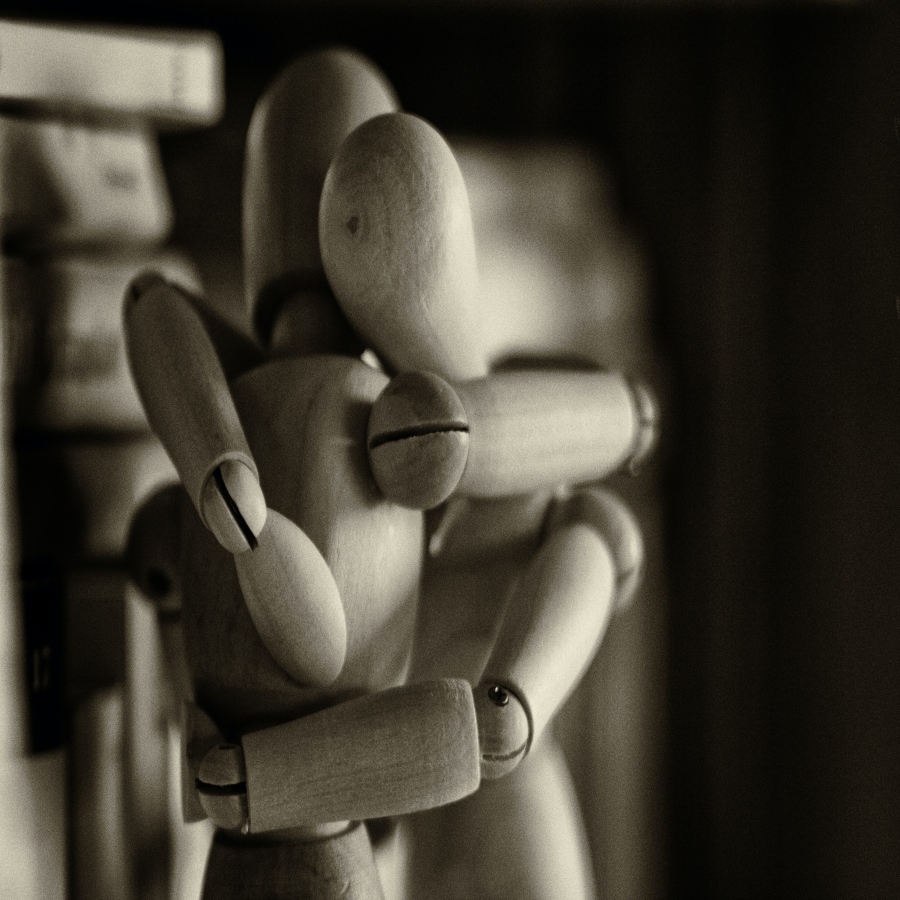Ann and Andy have a small, quiet apartment. They live tucked into a nook in a towering building, which is filled with other people who also live small, quiet lives.
Ann and Andy are made of biodegradable material.
We should note here that their names are not Ann and Andy; we just like to think of them that way: she inside him, and he a part of her. We do not know his or her real name, but that is okay. A name outlives its body; a name becomes an echo without a voice, a sign without referent.
Ann?
Andy?
Tonight, they are sitting together on their sofa inside their little apartment. They talk about big things and little things but only things that matter to them. They rarely feel compelled to have opinions about other people; they prefer to talk about ideas.
Andy does not want Ann to biodegrade. He knows that if the earth reclaims her, he will not be able to find her again. There is insidious material, Andy suggests, something that finds a way of lasting forever. Let us turn into plastic.
Ann does not want Andy to biodegrade, but she knows they should not turn into plastic. As plastic, they would stand. Maybe they would tip and fall. Maybe they would melt, but as plastic, of course, they would feel none of it. Nothing at all.
How will I find you once your trillions of cells and my trillions of cells don’t have voices to connect us? Andy wants to know.
I will make a way to call to you, and you will make a way to answer.
I will.
We will.
But we can’t go into the infinite unprepared, says Ann.
Ann touches Andy’s beautiful biodegradable forehead with her fingers. She gets up from the sofa and retrieves the knife they use for cutting fruit. She makes a small incision where the imprint of her fingertips still lingers.
Andy does not flinch. His gaze remains inside Ann’s eyes until it is his turn to take the knife and put it to her forehead.
Through the single trickle of blood bisecting their faces, they each pull out an invisible thread, one that can never biodegrade. Ann passes her thread to Andy, who takes it with his. He knots them together. He tugs to test the knot. They wrench and rip and pull and scream and decide to believe that the threads will remain connected.
It will hold, Ann says.
It will hold.
For a time, Ann and Andy remain together on their sofa while their biodegradable bodies continue to quietly deteriorate, but across the invisible thread they exchange tiny pieces of each other. For every one received, one is transmitted in return. Second by second, reciprocation continues.
Ann and Andy do not see our faces pressed against their apartment windows. We peer in from all sides. We scrutinize that invisible thread between them. Then we ravage our bodies, searching for our own.

